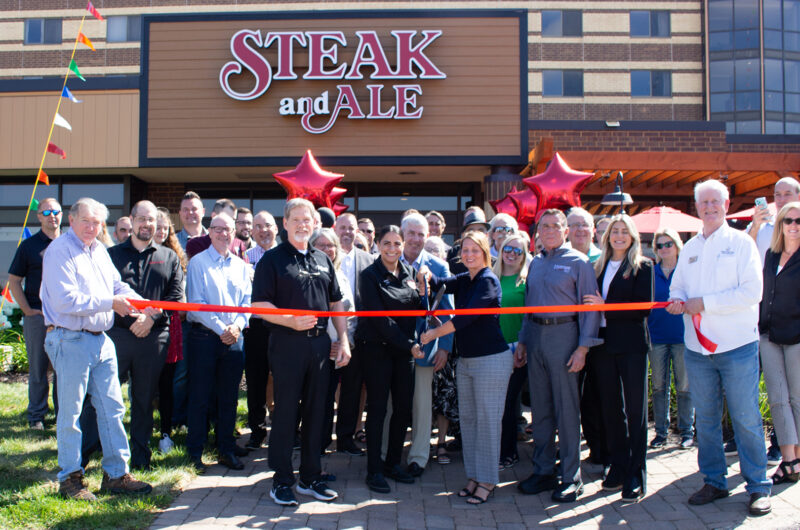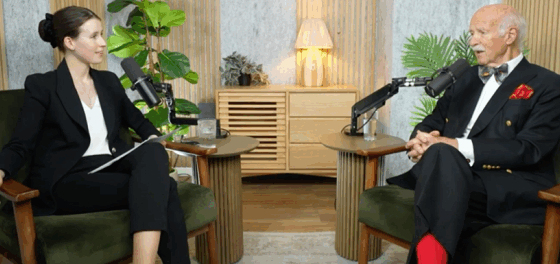
In today’s hospitality industry, leadership in food and beverage operations is being reimagined. Economic pressures, labor challenges, regulatory complexity and rising guest expectations have accelerated the need for smarter, more resilient operations.
F&B leadership today demands more than operational know-how — it calls for cultivating a high-performance culture and ensuring agility in a fast-changing environment. And increasingly, that cultural shift is being driven by digital transformation.
Digital tools are reshaping what leadership looks like: from reactive to strategic, from top-down to collaborative and from opaque to transparent. Here’s how digitization is already empowering hotel leaders to foster accountability, improve operational culture and enable consistent, scalable excellence.
Clarity as the foundation
In complex hotel environments, particularly those with multi-outlet or multi-shift F&B operations, clarity is often lacking. Tasks are assigned verbally; notes are scribbled on paper; and critical information is passed from shift to shift without structure. In such environments, even the most committed team members can falter due to ambiguity.
Digital systems change that.
When tasks, checklists, audits and incident management are documented and centrally managed, clarity becomes the norm. Each team member knows their responsibilities and can execute them with confidence. Instead of chasing instructions or relying on memory, they can focus on delivery. Clear expectations lead to clear ownership, and ownership is the seed of accountability.
For hotel leaders, this means fewer repeated instructions, fewer gaps in compliance and more time for coaching and strategic oversight. When accountability becomes embedded in daily routines —not imposed externally— performance improves organically.
Delegation without detachment
One of the paradoxes of leadership is that as teams grow, the temptation to micromanage increases. But micromanagement is not scalable — and it erodes trust.
Digital tools allow leaders to delegate with confidence. With real-time visibility into tasks, hygiene logs, food safety compliance and team performance, they can remain informed without being physically present at every step.
For example, when opening a new F&B outlet in a hotel, digital dashboards can track staff onboarding, safety training, equipment maintenance and pre-launch audits. Managers can oversee progress from anywhere, identify delays and step in only when needed.
This kind of visibility empowers both leaders and teams. Staff feel trusted to manage their responsibilities, while managers can focus on mentoring rather than monitoring.
Building consistency
Inconsistency is one of the greatest threats to hotel brand integrity. A guest’s experience should not depend on who is on shift or what location they visit. Whether it’s food temperature, allergen labeling, or sanitation, standards must be repeatable.
Digital tools help standardize excellence. By replacing handwritten logs with digital records and ensuring that every compliance-related task is timestamped, geolocated and traceable, hotel operations can move toward a system of “always ready.”
When compliance becomes part of daily muscle memory — rather than a last-minute scramble — teams develop habits of excellence and those habits spread.
For hotel groups managing multiple properties, this consistency becomes a competitive advantage. Centralized systems allow corporate teams to benchmark performance, identify outliers, and deploy targeted training or support where it’s needed most.
Reducing friction to retain talent
In an industry plagued by high turnover, retaining talent is both a cost and a culture issue. Employees want clarity, purpose and tools that help them do their jobs well.
When digital platforms streamline onboarding, reduce paperwork and make expectations visible, they reduce friction and improve job satisfaction. Line staff no longer have to guess how to complete a record or whether their tasks are compliant. Kitchen and service teams feel confident that their efforts are seen, measured and supported.
In other words, digitalization improves employee experience — not just guest experience.
Data-Informed leadership
Data is not just for reports. It’s a leadership asset. Digital records reveal more than compliance status — they show trends, bottlenecks and hidden inefficiencies.
Leaders who embrace digital tools can spot when a team is struggling with a particular task, when food waste spikes in certain outlets or when cleaning routines aren’t meeting standards. This allows for timely, targeted interventions — not broad-stroke assumptions.
More importantly, it creates a learning culture. With data, teams can learn from past performance and actively participate in continuous improvement.
A cultural transformation
Ultimately, digitization is not about technology: it’s about people, about equipping teams with tools that make great performance easier, not harder. When used well, digital platforms don’t replace leadership — they amplify it. They free up managers to lead, guide and coach. They give teams structure and autonomy. They help organizations grow without sacrificing control or consistency.
Hotel management has always been about service, and service begins behind the scenes.
The transformation of hotel F&B operations depends on clarity, delegation, consistency, and insight — all of which digital tools make possible.
For hotel leaders ready to modernize their approach and build stronger, smarter teams, digital transformation offers not just a path to efficiency but a culture of excellence.
Story contributed by Rafa Liñán, CEO at Andy, a platform that offers centralized management for food service, food retail and hotel operations.







